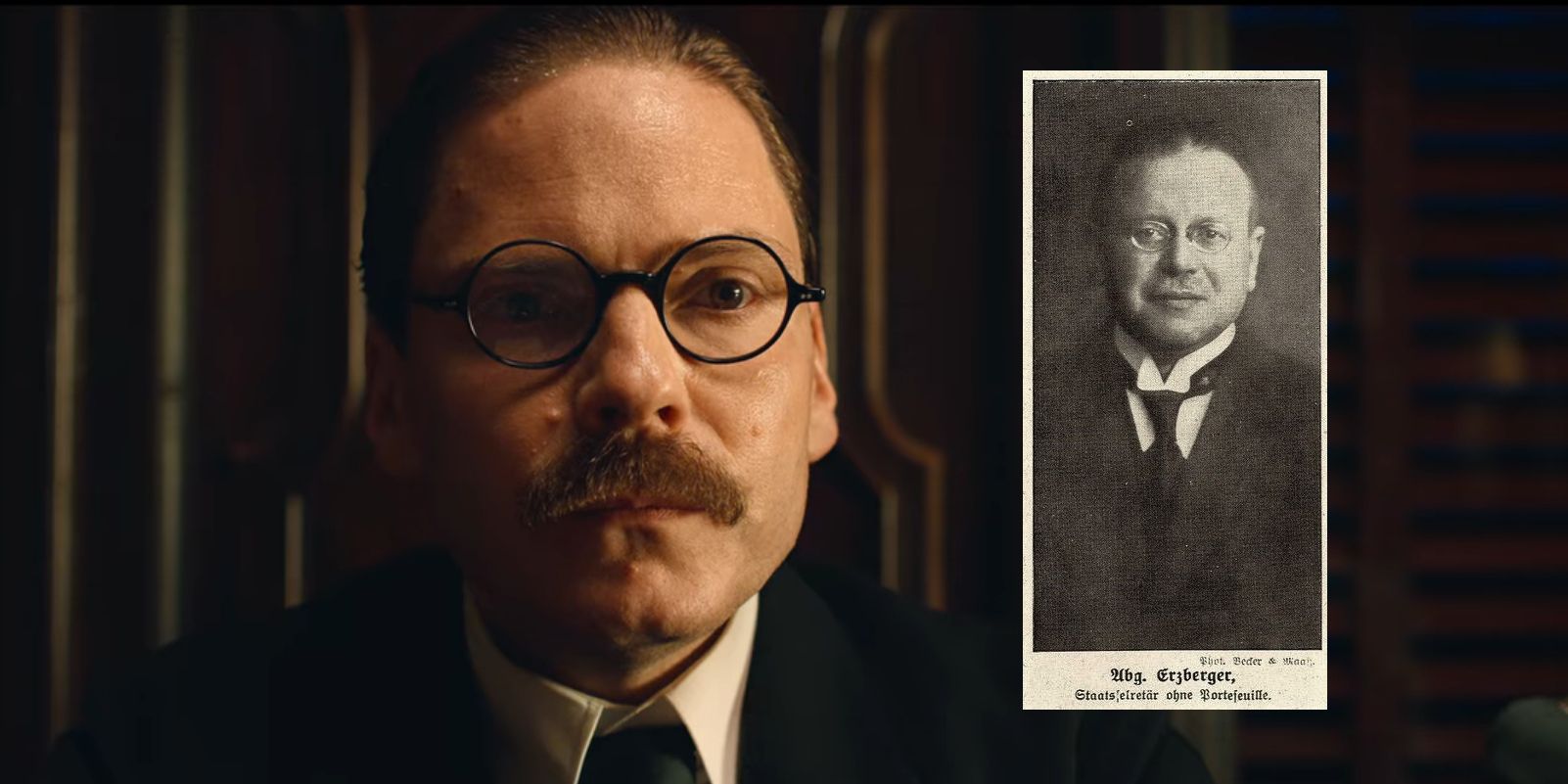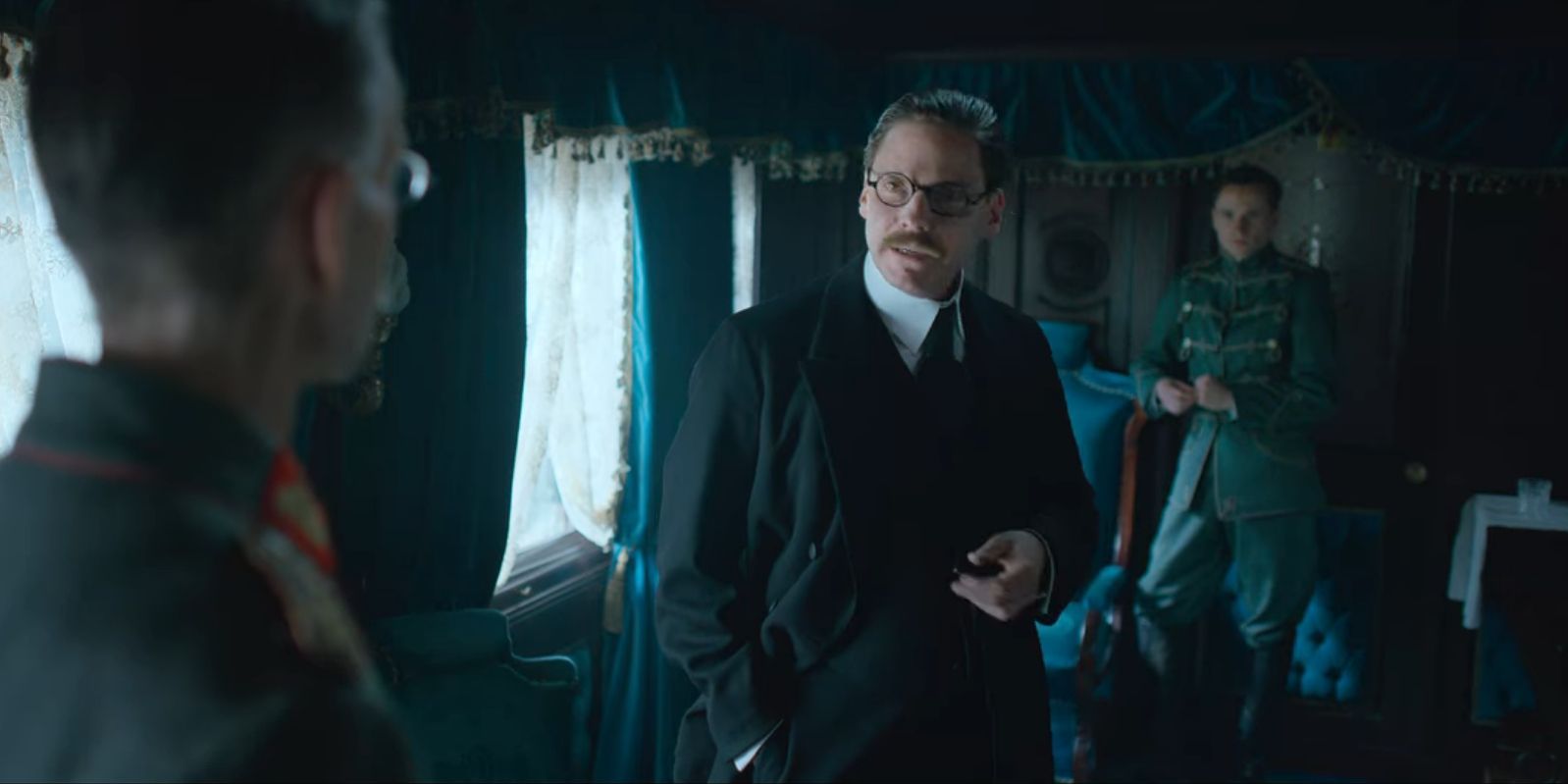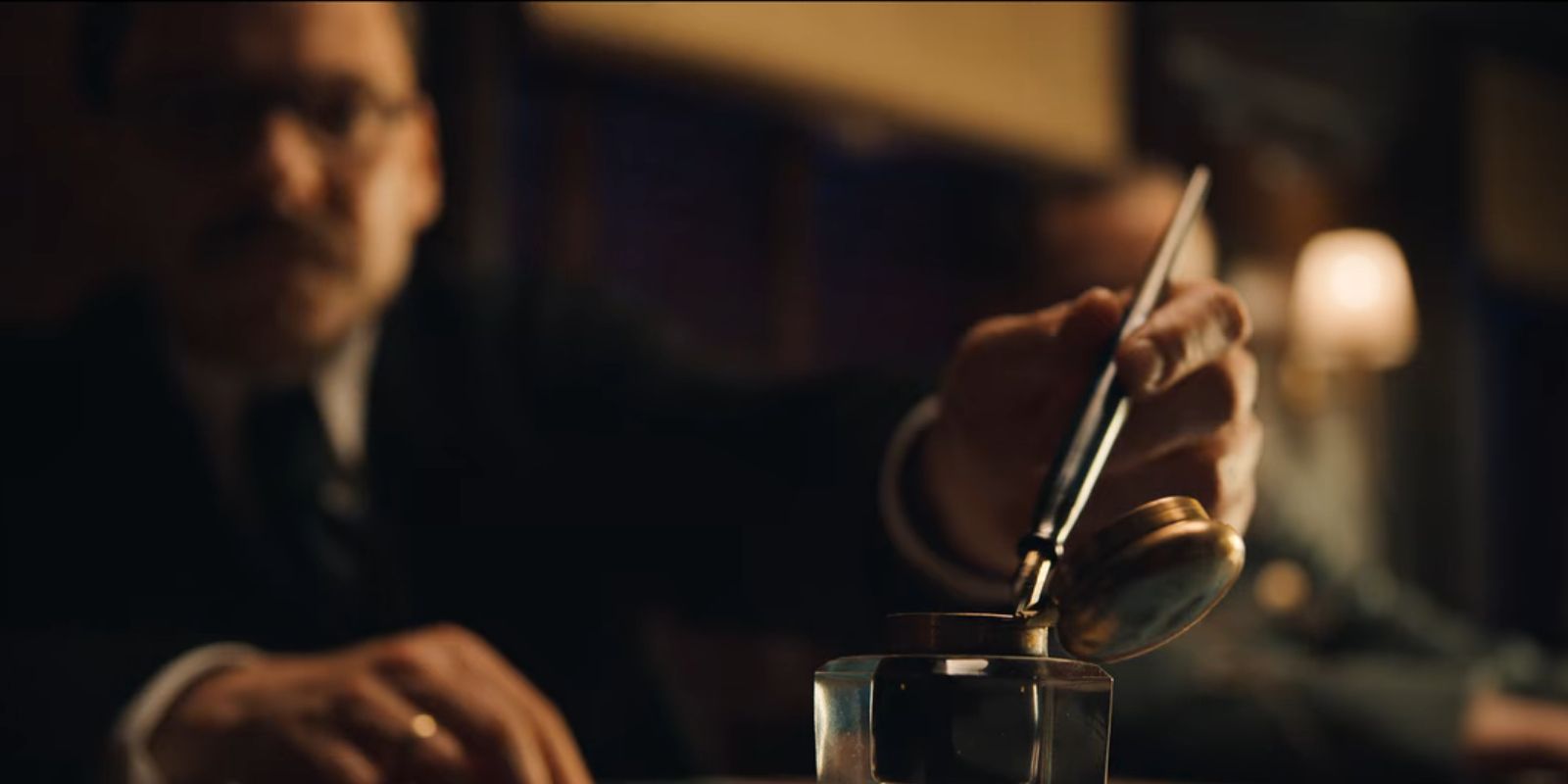The 2022 Netflix adaptation of All Quiet on the Western Front includes a character, Matthias Erzberger, based on a real German politician of the same name. Neither Erich Maria Remarque's 1929 novel nor its two previous adaptations contain the character, but he plays an essential part in the Netflix movie. Given his pivotal role, understanding Matthias Erzberger's real history is crucial.
Born in 1875 to a family without wealth or influence, Matthias Erzberger rose quickly through German social and political circles. At 28, he won a seat in the Reichstag as a conservative. He held several prominent government positions, first under Kaiser Wilhelm II and then later in Germany's post-World War I government, the Weimar Republic. Erzberger supported Germany's military buildup before World War I, and though he favored the war as it began in 1914, he became a pacifist as it raged on. Eventually, after years of heavy German losses, he led an internal peace initiative. All Quiet on the Western Front's Erzberger story picks up in November 1918, when Germany's military leadership accepted Erzberger's advice and authorized him to negotiate a cease-fire. As such, Matthias Erzberger's real history is central to Netflix's All Quiet on the Western Front adaptation.
How Accurate Is All Quiet On The Western Front's Matthias Erzberger?
All Quiet on the Western Front's main narrative tells a fictionalized version of Erich Maria Remarque's own wartime experiences. Still, the Netflix account of Matthias Erzberger's negotiations with Allied forces is generally accurate. He was appointed as a civilian to negotiate Germany's terms of surrender to Allied forces. The movie depicts those meetings aboard a train car in Compiègne as they actually took place. Erzberger really couldn't extract any concessions from the Allied supreme military commander, French General Ferdinand Foch. Erzberger's signature did end the Great War, and the cease-fire didn't take effect for six hours after he signed the armistice, just like the All Quiet on the Western Front ending shows. Daniel Bruhl even looks like the real Matthias Erzberger, making the depiction even more compelling.
What Happened To Matthias Erzberger In Real Life
The Allied powers dictated harsh terms and conditions in exchange for peace. The Treaty of Versailles' restrictions on the size of Germany's military abruptly sent millions of soldiers back to civilian life, just as reparations sapped what little capital remained in the German economy that could have created jobs for them. As the German people suffered tremendous, ongoing hardships, extreme-right nationalists gained popular support by blaming all of Germany's troubles on its surrender to the Allied powers, as All Quiet on the Western Front portrays. The proto-Nazis demonized Matthias Erzberger personally as a traitor for signing the armistice. Matthias Erzberger was assassinated on August 26, 1921, by a German ultra-nationalist death squad.
Nationalist propagandists only cast more attacks on Matthias Erzberger's character in the years after his murder. Extremists smeared his name with a false narrative that Erzberger had stabbed Germany's soldiers in the back when in fact, military leaders explicitly authorized his actions. Early Nazis fueled their rise to power by making Matthias Erzberger the most hated person in postwar Germany.
The Third Reich condemned Matthias Erzberger for his actions, as depicted in All Quiet on the Western Front. However, popular and official sentiment softened in the years following the Second World War, and the German postal service issued a stamp in 1975 to commemorate Erzberger's 100th birthday. By adding him to Remarque's original story, writer-director Edward Berger highlights Matthias Erzberger real history in a way that drives home the tragedy of the final, pointless, deadly hours of World War I.



